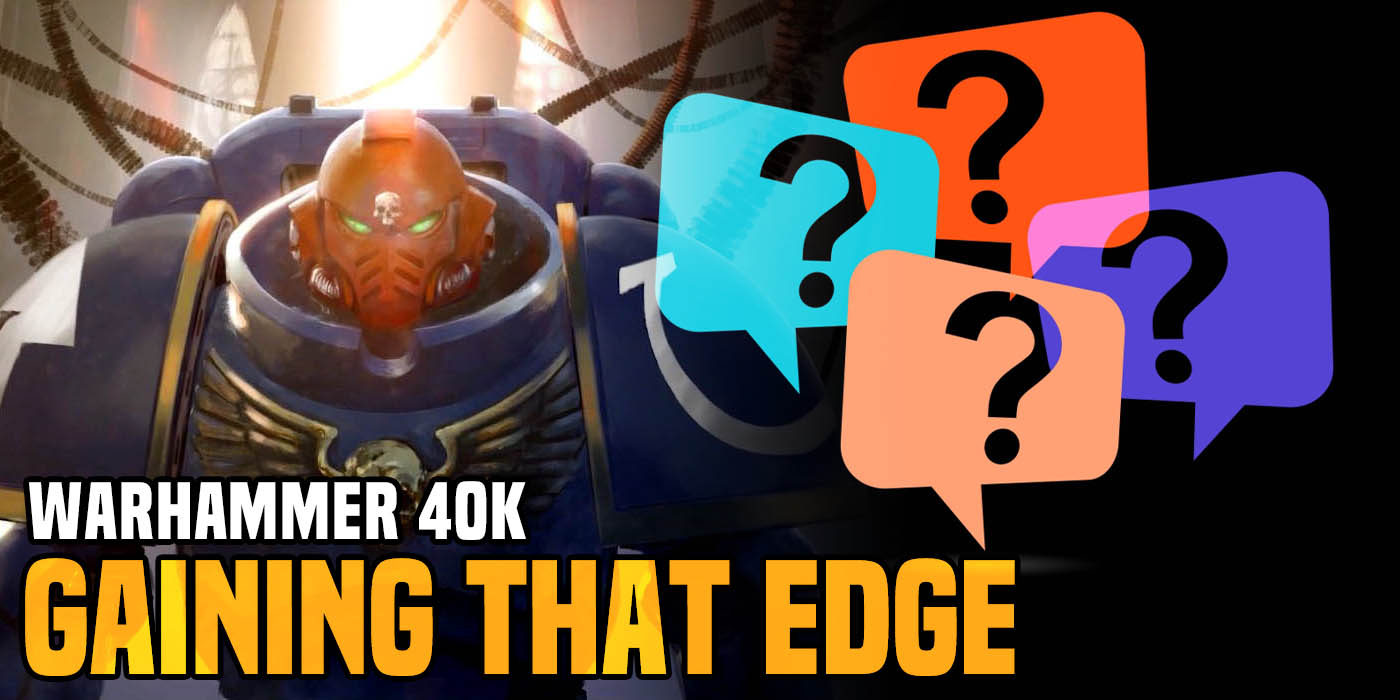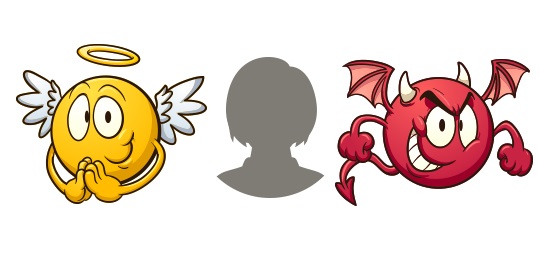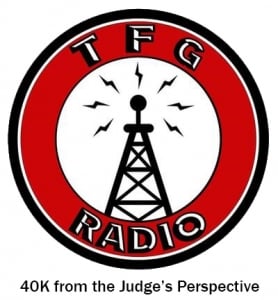Warhammer 40K: Getting that Extra Competitive Edge


Today we talk about a common tactic some players use to gain an advantage, and they try to use it throughout the game.
Hey everyone! Adam, from TFG Radio, here with another installment about our little talks about competitive 40K.
40K is a social game. From the very beginning, Games Workshop has always stressed the social aspect of the game and some of the “beer & pretzel” aspects as well. There is a lot going on during a game, whether it a friendly casual game, or the top table at the largest event in the world. There are many a time where Games Workshop suggests that you simply roll a d6 to determine how a rule should be interpreted. You could always ask you local rules lawyer, you know you have one, and that is usually the closest “official” answer you will get until an FAQ is released. Because of this, players should talk to each other to clear up any small issues that may come up or clarify and rules for things like terrain. When these discussions start it also starts a bit of the mind game of 40K. Some players use this trick in order to gain an advantage, and they try to use it throughout the game. This tactic is one that everyone uses, some with greater effect than others, and can greatly help a player gain an advantage. It can go by many names but we call it “Bidding”.
Bidding
“Bidding” is when someone asks for that extra edge to what they are doing or what they want to do. Someone can “bid” on almost anything in the confines of a game. There are plenty examples of when, and why, people bid. An obvious example are takebacks. As I discussed in another article, takebacks are when you, or your opponent, forget to do something and ask if it is okay to go back and do that action that you forgot. This is a very common bid and, as mentioned, an obvious one. If done early in the game it can be seen as a test on how flexible a player can be when it comes to takebacks. If a player feels that they can easily get takeback, they may play a little more loose and ask for a high number of them. If the answer is a hard “no” then they know that they must be careful with their actions during the game as any mistakes will not be allowed to be corrected.
 Other, more subtle, example of someone making a bid is in regards to agreeing on measurements. A lot of times players will agree on certain aspects of the game in order to speed up play. A player will bid on the measurements by placing the unit, measuring, and declaring what the measurement is. He then waits to see what how his opponent will react. Will he also measure to see if it is the same or will he simply accept his opponent’s word? How this is answered will let the player know how far he can go with the measurements, if he so chooses. There have been instances where a player declared their unit only need a 6 inch charge when, in reality, it was actually a 9 inch charge if you actually measured it. If a judge is called, they would almost have to rule in the favor of the shorter distance because that is what both players agreed to. The biggest example of bidding is at the end of the game. Many times you will have a player, who looks like they are winning, “bid” by trying to convinve their opponent that they are going to lose, and call the game. Yes, this help s speed up a game that could actually be lost, but this is still a dice game so you may want to see what the point differential is before giving up on the game.
Other, more subtle, example of someone making a bid is in regards to agreeing on measurements. A lot of times players will agree on certain aspects of the game in order to speed up play. A player will bid on the measurements by placing the unit, measuring, and declaring what the measurement is. He then waits to see what how his opponent will react. Will he also measure to see if it is the same or will he simply accept his opponent’s word? How this is answered will let the player know how far he can go with the measurements, if he so chooses. There have been instances where a player declared their unit only need a 6 inch charge when, in reality, it was actually a 9 inch charge if you actually measured it. If a judge is called, they would almost have to rule in the favor of the shorter distance because that is what both players agreed to. The biggest example of bidding is at the end of the game. Many times you will have a player, who looks like they are winning, “bid” by trying to convinve their opponent that they are going to lose, and call the game. Yes, this help s speed up a game that could actually be lost, but this is still a dice game so you may want to see what the point differential is before giving up on the game.
Good or Bad?
Is bidding bad for the game, or just bad form? Not really. We actually do this in our daily lives outside of the tabletop. We just don’t realize it. If you are in a relationship,or have kids, this is especially true. Kids are a great example of bidding. They are always bidding. Whether its for toys, play time, hanging out with friends, going to the park, eating certain foods, or whatever kids love, they are always testing the waters with their parents. We do the same as adults. We sometimes check the reaction of our significant other to see if we can go to game night or attend a tournament. We do it at work to maybe see if your boss is in a good mood to ask for a raise or just to get time off to go to a tournament. There are many ways we “bid” with others in our lives, so why would a tabletop tournament be any different? Hopefully this description, and examples, of bidding will help you identify it during your games.
~That’s all for this week. I hope you enjoyed the article. Be sure to tell us about your experience with bidding, either during a tournament or in your daily life, in the comments below.








